How Alarmed Harris Staffers Went Rogue to Reach Black and Latino Voters
The New York Times (archive.ph)
By Nicholas NehamasMaya King and Zolan Kanno-Youngs
2024-12-07 18:03:27GMT
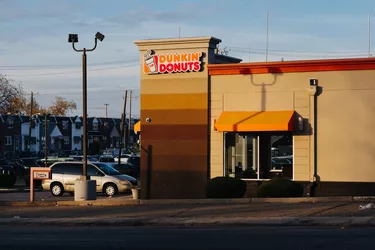
In Philadelphia, frustrated campaign organizers for Vice President Kamala Harris gathered in stealth at a Dunkin’ Donuts as they tried to turn out Black and Latino voters on their own.Credit...Michelle Gustafson for The New York Times
Two days before the November election, a rogue team of campaign organizers for Vice President Kamala Harris turned a Dunkin’ Donuts in Philadelphia into their secret headquarters.
Their mission was simple: Knock on the doors of as many Black and Latino voters as they could in neighborhoods that they believed the Harris campaign had neglected in its get-out-the-vote-operation. And they could not let their bosses find out.
They called it Operation Dunkin’kirk, a gallows-humor joke about the desperate World War II mission to save Allied troops trapped by Nazi armies in France.
Fueled by boxes of coffee in their impromptu boiler room, the small team of operatives crunched internal campaign data beneath purloined Harris-Walz signs and directed dozens of volunteers across the city’s core Democratic wards. Many of the thousands of Black and Latino voters they talked to said they had never heard from the campaign, a stunning breakdown so close to Election Day.
“I was the first one knocking on these doors,” said Amelia Pernell, a Harris campaign organizer involved in setting up the clandestine Dunkin’ Donuts field office in North Philadelphia. “They hadn’t talked to anybody. It was like: ‘Hey, nobody has come to our neighborhood. The campaign doesn’t care about us.’”
The Dunkin’ Donuts office and several similar efforts in Philadelphia, often funded independently by Democratic donors through nonprofit voter-education groups, reflected deep frustration within the campaign. Numerous Harris organizers believed it was failing to invest in mobilizing Black and Latino voters in the nation’s sixth-largest city, the biggest prize in the election’s most populous battleground state.
This article is based on interviews with 11 Harris campaign staff members and volunteers who were directly involved in organizing the stealth efforts in the weeks before the election, most of whom insisted on anonymity to talk candidly about internal campaign matters. The New York Times also spoke with more than 20 other campaign officials, volunteers, Democratic Party operatives and elected leaders who were involved in voter outreach around the country and described how it fell short.
The covert operations, many of them led by Black organizers, represented extraordinary acts of insubordination against the Harris campaign.
Campaign organizers in Philadelphia said they were told not to engage in the bread-and-butter tasks of getting out the vote in Black and Latino neighborhoods, such as attending community events, registering new voters, building relationships with local leaders and calling voters.
Instead, they said, they were instructed to spend most of their days phoning the same small pool of volunteers and asking them to knock on voters’ doors and help run field offices. The strategy essentially turned experienced organizers into glorified telemarketers making hundreds of calls daily, with some harried volunteers begging to be taken off call lists.
Staff members also said that the campaign did not hire enough Black and Latino campaign workers or political consulting firms that were owned by people of color and had expertise in reaching such voters — a source of continuing frustration among Democratic operatives that they say has contributed to the erosion of the party’s multiracial base.
The Harris campaign said it had made sustained and comprehensive efforts to reach voters of color, including a paid canvassing operation that knocked on the doors of 1.3 million Black and Latino voters in Pennsylvania. It also said it had teams of staff members separate from its field-organizing division who were dedicated to community engagement. Those teams worked with local leaders and took on projects like distributing 1,000 “We Won’t Go Back” posters to Black and Latino small businesses and painting murals in well-trafficked areas. The campaign began buying ads targeted to Black and Latino voters in the fall of 2023.
And Ms. Harris made frequent appearances across Philadelphia — including visiting a church, a barbershop and a Puerto Rican restaurant in one day — while the campaign deployed top surrogates to the city, including Senator Raphael Warnock of Georgia and Representative Alexandria Ocasio-Cortez of New York.
Kellan White, a senior adviser to the Harris campaign in Pennsylvania, said in a statement: “This campaign did more in Philadelphia to reach Black and Latino voters than any campaign has done in a long time. The issue is not that we didn’t knock on these doors — we knocked on a ton of doors. The problem was that the message itself didn’t connect — and that’s what we as a party need to spend our time and energy on, trying to understand why when we knocked these doors, what we had to say didn’t resonate with enough voters.”
But Isaiah Thomas, a Philadelphia City Council member, said the campaign had waited too long to harness the energy generated by Ms. Harris’s nomination.
“The blitz that happened at the end of the campaign was too little, too late,” he said. “The momentum got down because there was no activity happening.”
‘No sign that we were in the fight of our lives’
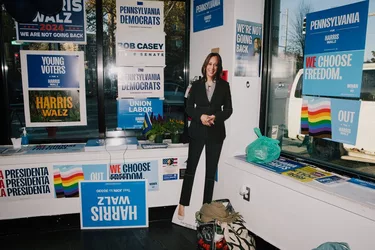
A campaign office for Ms. Harris in the Germantown neighborhood of Philadelphia. She ended up winning roughly 35,000 fewer votes in the city than President Biden did four years ago.Credit...Michelle Gustafson for The New York Times
On election night, Ms. Harris drastically underperformed in Philadelphia.
Although she picked up support in white precincts near downtown, she lost votes in some Latino and Black neighborhoods elsewhere in the city.
In interviews, many Democrats expressed little surprise, saying that the Harris campaign had devoted much of its energy to winning over moderate white voters in wealthier neighborhoods and suburbs, both in Philadelphia and around the nation. In an October memo, her campaign wrote that the “path to win Pennsylvania capitalizes on Trump’s unprecedented weakness in the suburbs.”
As a result, many staff members felt that Philadelphia’s racially diverse neighborhoods were ignored.
Even though the campaign raised $1.5 billion, many of its field offices in the city were filthy and lacked basic supplies like tables, chairs, cleaning products and printers, staff members said. Several recounted being forced to raid the campaign’s better-stocked suburban offices or to raise money independently. One office received more than 20 boxes of campaign T-shirts, only to discover an embarrassing misspelling: “Harriz-Walz.”
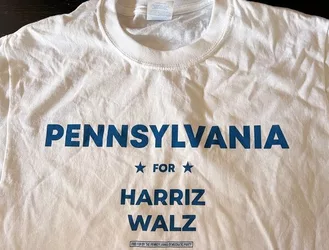
The offices were sometimes far from the communities they were supposed to serve. One office meant to get out the vote in West Philadelphia, a predominantly Black area, was so far west that it sat on the border with Montgomery County, a wealthy white suburb.
Others were set up in gentrifying neighborhoods where the campaign could easily reach young, white professionals but struggled to engage working-class voters of color. In South Philadelphia, another racially diverse neighborhood, campaign staff members were operating out of public parks, grocery-store parking lots and church basements until the month before Election Day.
“There were no yard signs, there was no visibility, there were no T-shirts,” said Donnel Baird, who worked on the presidential campaigns of John Kerry and Barack Obama and volunteered with Ms. Harris’s get-out-the-vote operation in Philadelphia for two months. “There was nobody handing out literature. There were no bumper stickers. There was no sign that we were in the fight of our lives in the most important city in a presidential campaign.”
The Trump campaign and its allies sensed an opportunity, using targeted advertising and a handful of outreach events to reach voters of color, especially young men, and to make inroads with key parts of the Democratic base.
The problems went beyond Philadelphia. Mayor Dwan B. Walker of Aliquippa, a small city outside Pittsburgh, said the campaign had agreed to fund a get-out-the-vote bus tour for the state’s Black mayors, many of whom represent rural areas. But he said the money was pulled with little explanation.
“You know politics is local,” Mr. Walker said. “We keep saying that. But this campaign didn’t touch it.”
Some Democrats in other battleground states expressed similar concerns. Ms. Harris lost every swing state, including Pennsylvania.
Keith McCants, the chair of a county Democratic Party in a rural part of Georgia with many Black voters, said the Harris campaign’s get-out-the-vote operation had been nonexistent, even as he had pleaded for resources.
“They didn’t do nothing, absolutely nothing,” he said. “They thought: ‘Those Black voters are going to come home. They will vote for her regardless because she’s a Black woman. So let’s just focus on the suburbs.’”
A fight over strategy
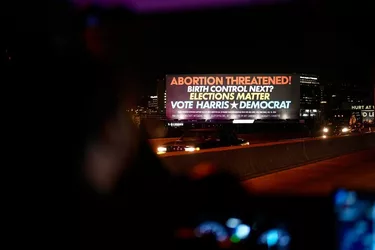
Since Ms. Harris’s loss, Democrats have debated whether she faced a hopeless political environment or made strategic mistakes that proved decisive.Credit...Erin Schaff/The New York Times
Many Democrats have argued that Ms. Harris’s loss was primarily caused by factors like inflation and President Biden’s late decision to drop out — and that she could have done little differently.
But her campaign’s strategic choices have still come under intense scrutiny as the party debates whether it needs to rebuild itself from the ground up.
Ms. Harris’s top advisers have said that her campaign greatly improved on Mr. Biden’s early-summer standing, and that they had too little time to run a full campaign. As evidence that their tactics produced results, they pointed to the fact that Ms. Harris did better in the battleground states, where she campaigned heavily, than in solidly blue states, where she did not.
Ryan Boyer Sr., a labor leader in Philadelphia, said he thought the Harris campaign’s problem was a message that did not connect with working-class Americans, not a flaw in its get-out-the-vote infrastructure.
“I think that we had a lot of reproductive-rights commercials and not enough bread-and-butter economic messaging,” he said.
But many Black campaign staff members and political operatives said campaign leadership dismissed concerns that Democrats were taking their base for granted.
After Ms. Harris’s loss, Black campaign employees set up a call to talk about career opportunities with Angela Rye, a political strategist and podcast host. The discussion quickly shifted as they shared their anger at how the campaign had treated them, and how underfunded and haphazard their field operations had been in several battleground states, according to a recording of the call obtained by The Times.
An internal survey commissioned by the Harris campaign also found that Black staff members were frustrated with campaign leaders and felt that their ideas were ignored at a rate far higher than their peers’. Some complained of outright racial discrimination. The campaign’s leadership was made aware of the survey’s results.
Few of those frustrations have been leaked to the public.
In an all-staff call after the election, Quentin Fulks, the principal deputy campaign manager, told staff members that talking to the press would ruin their career prospects, four people on the call said.
Lauren Hitt, a Harris campaign spokeswoman, denied that Mr. Fulks had used that language or tone on the call, and said that he had instead counseled staff members against saying something in a moment of anger that could come to hurt themselves or the vice president.
Campaigning under the radar
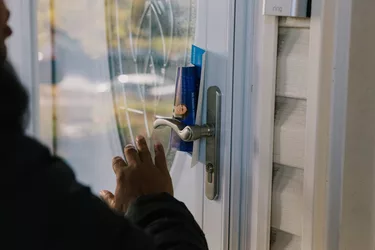
Numerous Harris organizers believed the campaign was failing to invest in mobilizing Black and Latino voters in Philadelphia, the biggest prize in the most populous battleground state.Credit...Michelle Gustafson for The New York Times
In Philadelphia, Operation Dunkin’kirk was not the only freelance effort organized by frustrated campaign workers.
One staff member said he had raised tens of thousands of dollars to pay for operations to register voters and distribute campaign literature at public-transit stops, as well as to put up lawn signs in Black and Latino neighborhoods.
Another described a rogue surrogate operation that brought the actor Delroy Lindo and former Mayor Michael Nutter of Philadelphia to speak at Black churches and barbershops.
Others set up a program to text voters in Arabic.
Quentin James, a founder of the Collective PAC, a group that focuses on Black elected officials and voters and that worked with the Harris campaign, recounted frantic campaign staff members in Philadelphia, Detroit and North Carolina calling him in the final weeks of the race to say they did not have enough money to provide food or water to volunteers.
“Black staffers reached out to me directly and said we need additional support,” Mr. James said.
Even with defeat staring them in the face, Harris campaign leaders seemed in denial about the situation in Philadelphia. Late on election night, Jen O’Malley Dillon, the campaign chair, wrote an all-staff email saying that the Harris campaign had “over-performed turnout expectations there,” especially in areas with nonwhite voters.
It was not enough.
In the end, Ms. Harris received roughly 35,000 fewer votes in Philadelphia than Mr. Biden did four years earlier.
The New York Times (archive.ph)
By Nicholas NehamasMaya King and Zolan Kanno-Youngs
2024-12-07 18:03:27GMT

In Philadelphia, frustrated campaign organizers for Vice President Kamala Harris gathered in stealth at a Dunkin’ Donuts as they tried to turn out Black and Latino voters on their own.Credit...Michelle Gustafson for The New York Times
Two days before the November election, a rogue team of campaign organizers for Vice President Kamala Harris turned a Dunkin’ Donuts in Philadelphia into their secret headquarters.
Their mission was simple: Knock on the doors of as many Black and Latino voters as they could in neighborhoods that they believed the Harris campaign had neglected in its get-out-the-vote-operation. And they could not let their bosses find out.
They called it Operation Dunkin’kirk, a gallows-humor joke about the desperate World War II mission to save Allied troops trapped by Nazi armies in France.
Fueled by boxes of coffee in their impromptu boiler room, the small team of operatives crunched internal campaign data beneath purloined Harris-Walz signs and directed dozens of volunteers across the city’s core Democratic wards. Many of the thousands of Black and Latino voters they talked to said they had never heard from the campaign, a stunning breakdown so close to Election Day.
“I was the first one knocking on these doors,” said Amelia Pernell, a Harris campaign organizer involved in setting up the clandestine Dunkin’ Donuts field office in North Philadelphia. “They hadn’t talked to anybody. It was like: ‘Hey, nobody has come to our neighborhood. The campaign doesn’t care about us.’”
The Dunkin’ Donuts office and several similar efforts in Philadelphia, often funded independently by Democratic donors through nonprofit voter-education groups, reflected deep frustration within the campaign. Numerous Harris organizers believed it was failing to invest in mobilizing Black and Latino voters in the nation’s sixth-largest city, the biggest prize in the election’s most populous battleground state.
This article is based on interviews with 11 Harris campaign staff members and volunteers who were directly involved in organizing the stealth efforts in the weeks before the election, most of whom insisted on anonymity to talk candidly about internal campaign matters. The New York Times also spoke with more than 20 other campaign officials, volunteers, Democratic Party operatives and elected leaders who were involved in voter outreach around the country and described how it fell short.
The covert operations, many of them led by Black organizers, represented extraordinary acts of insubordination against the Harris campaign.
Campaign organizers in Philadelphia said they were told not to engage in the bread-and-butter tasks of getting out the vote in Black and Latino neighborhoods, such as attending community events, registering new voters, building relationships with local leaders and calling voters.
Instead, they said, they were instructed to spend most of their days phoning the same small pool of volunteers and asking them to knock on voters’ doors and help run field offices. The strategy essentially turned experienced organizers into glorified telemarketers making hundreds of calls daily, with some harried volunteers begging to be taken off call lists.
Staff members also said that the campaign did not hire enough Black and Latino campaign workers or political consulting firms that were owned by people of color and had expertise in reaching such voters — a source of continuing frustration among Democratic operatives that they say has contributed to the erosion of the party’s multiracial base.
The Harris campaign said it had made sustained and comprehensive efforts to reach voters of color, including a paid canvassing operation that knocked on the doors of 1.3 million Black and Latino voters in Pennsylvania. It also said it had teams of staff members separate from its field-organizing division who were dedicated to community engagement. Those teams worked with local leaders and took on projects like distributing 1,000 “We Won’t Go Back” posters to Black and Latino small businesses and painting murals in well-trafficked areas. The campaign began buying ads targeted to Black and Latino voters in the fall of 2023.
And Ms. Harris made frequent appearances across Philadelphia — including visiting a church, a barbershop and a Puerto Rican restaurant in one day — while the campaign deployed top surrogates to the city, including Senator Raphael Warnock of Georgia and Representative Alexandria Ocasio-Cortez of New York.
Kellan White, a senior adviser to the Harris campaign in Pennsylvania, said in a statement: “This campaign did more in Philadelphia to reach Black and Latino voters than any campaign has done in a long time. The issue is not that we didn’t knock on these doors — we knocked on a ton of doors. The problem was that the message itself didn’t connect — and that’s what we as a party need to spend our time and energy on, trying to understand why when we knocked these doors, what we had to say didn’t resonate with enough voters.”
But Isaiah Thomas, a Philadelphia City Council member, said the campaign had waited too long to harness the energy generated by Ms. Harris’s nomination.
“The blitz that happened at the end of the campaign was too little, too late,” he said. “The momentum got down because there was no activity happening.”
‘No sign that we were in the fight of our lives’

A campaign office for Ms. Harris in the Germantown neighborhood of Philadelphia. She ended up winning roughly 35,000 fewer votes in the city than President Biden did four years ago.Credit...Michelle Gustafson for The New York Times
On election night, Ms. Harris drastically underperformed in Philadelphia.
Although she picked up support in white precincts near downtown, she lost votes in some Latino and Black neighborhoods elsewhere in the city.
In interviews, many Democrats expressed little surprise, saying that the Harris campaign had devoted much of its energy to winning over moderate white voters in wealthier neighborhoods and suburbs, both in Philadelphia and around the nation. In an October memo, her campaign wrote that the “path to win Pennsylvania capitalizes on Trump’s unprecedented weakness in the suburbs.”
As a result, many staff members felt that Philadelphia’s racially diverse neighborhoods were ignored.
Even though the campaign raised $1.5 billion, many of its field offices in the city were filthy and lacked basic supplies like tables, chairs, cleaning products and printers, staff members said. Several recounted being forced to raid the campaign’s better-stocked suburban offices or to raise money independently. One office received more than 20 boxes of campaign T-shirts, only to discover an embarrassing misspelling: “Harriz-Walz.”

The offices were sometimes far from the communities they were supposed to serve. One office meant to get out the vote in West Philadelphia, a predominantly Black area, was so far west that it sat on the border with Montgomery County, a wealthy white suburb.
Others were set up in gentrifying neighborhoods where the campaign could easily reach young, white professionals but struggled to engage working-class voters of color. In South Philadelphia, another racially diverse neighborhood, campaign staff members were operating out of public parks, grocery-store parking lots and church basements until the month before Election Day.
“There were no yard signs, there was no visibility, there were no T-shirts,” said Donnel Baird, who worked on the presidential campaigns of John Kerry and Barack Obama and volunteered with Ms. Harris’s get-out-the-vote operation in Philadelphia for two months. “There was nobody handing out literature. There were no bumper stickers. There was no sign that we were in the fight of our lives in the most important city in a presidential campaign.”
The Trump campaign and its allies sensed an opportunity, using targeted advertising and a handful of outreach events to reach voters of color, especially young men, and to make inroads with key parts of the Democratic base.
The problems went beyond Philadelphia. Mayor Dwan B. Walker of Aliquippa, a small city outside Pittsburgh, said the campaign had agreed to fund a get-out-the-vote bus tour for the state’s Black mayors, many of whom represent rural areas. But he said the money was pulled with little explanation.
“You know politics is local,” Mr. Walker said. “We keep saying that. But this campaign didn’t touch it.”
Some Democrats in other battleground states expressed similar concerns. Ms. Harris lost every swing state, including Pennsylvania.
Keith McCants, the chair of a county Democratic Party in a rural part of Georgia with many Black voters, said the Harris campaign’s get-out-the-vote operation had been nonexistent, even as he had pleaded for resources.
“They didn’t do nothing, absolutely nothing,” he said. “They thought: ‘Those Black voters are going to come home. They will vote for her regardless because she’s a Black woman. So let’s just focus on the suburbs.’”
A fight over strategy

Since Ms. Harris’s loss, Democrats have debated whether she faced a hopeless political environment or made strategic mistakes that proved decisive.Credit...Erin Schaff/The New York Times
Many Democrats have argued that Ms. Harris’s loss was primarily caused by factors like inflation and President Biden’s late decision to drop out — and that she could have done little differently.
But her campaign’s strategic choices have still come under intense scrutiny as the party debates whether it needs to rebuild itself from the ground up.
Ms. Harris’s top advisers have said that her campaign greatly improved on Mr. Biden’s early-summer standing, and that they had too little time to run a full campaign. As evidence that their tactics produced results, they pointed to the fact that Ms. Harris did better in the battleground states, where she campaigned heavily, than in solidly blue states, where she did not.
Ryan Boyer Sr., a labor leader in Philadelphia, said he thought the Harris campaign’s problem was a message that did not connect with working-class Americans, not a flaw in its get-out-the-vote infrastructure.
“I think that we had a lot of reproductive-rights commercials and not enough bread-and-butter economic messaging,” he said.
But many Black campaign staff members and political operatives said campaign leadership dismissed concerns that Democrats were taking their base for granted.
After Ms. Harris’s loss, Black campaign employees set up a call to talk about career opportunities with Angela Rye, a political strategist and podcast host. The discussion quickly shifted as they shared their anger at how the campaign had treated them, and how underfunded and haphazard their field operations had been in several battleground states, according to a recording of the call obtained by The Times.
An internal survey commissioned by the Harris campaign also found that Black staff members were frustrated with campaign leaders and felt that their ideas were ignored at a rate far higher than their peers’. Some complained of outright racial discrimination. The campaign’s leadership was made aware of the survey’s results.
Few of those frustrations have been leaked to the public.
In an all-staff call after the election, Quentin Fulks, the principal deputy campaign manager, told staff members that talking to the press would ruin their career prospects, four people on the call said.
Lauren Hitt, a Harris campaign spokeswoman, denied that Mr. Fulks had used that language or tone on the call, and said that he had instead counseled staff members against saying something in a moment of anger that could come to hurt themselves or the vice president.
Campaigning under the radar

Numerous Harris organizers believed the campaign was failing to invest in mobilizing Black and Latino voters in Philadelphia, the biggest prize in the most populous battleground state.Credit...Michelle Gustafson for The New York Times
In Philadelphia, Operation Dunkin’kirk was not the only freelance effort organized by frustrated campaign workers.
One staff member said he had raised tens of thousands of dollars to pay for operations to register voters and distribute campaign literature at public-transit stops, as well as to put up lawn signs in Black and Latino neighborhoods.
Another described a rogue surrogate operation that brought the actor Delroy Lindo and former Mayor Michael Nutter of Philadelphia to speak at Black churches and barbershops.
Others set up a program to text voters in Arabic.
Quentin James, a founder of the Collective PAC, a group that focuses on Black elected officials and voters and that worked with the Harris campaign, recounted frantic campaign staff members in Philadelphia, Detroit and North Carolina calling him in the final weeks of the race to say they did not have enough money to provide food or water to volunteers.
“Black staffers reached out to me directly and said we need additional support,” Mr. James said.
Even with defeat staring them in the face, Harris campaign leaders seemed in denial about the situation in Philadelphia. Late on election night, Jen O’Malley Dillon, the campaign chair, wrote an all-staff email saying that the Harris campaign had “over-performed turnout expectations there,” especially in areas with nonwhite voters.
It was not enough.
In the end, Ms. Harris received roughly 35,000 fewer votes in Philadelphia than Mr. Biden did four years earlier.
